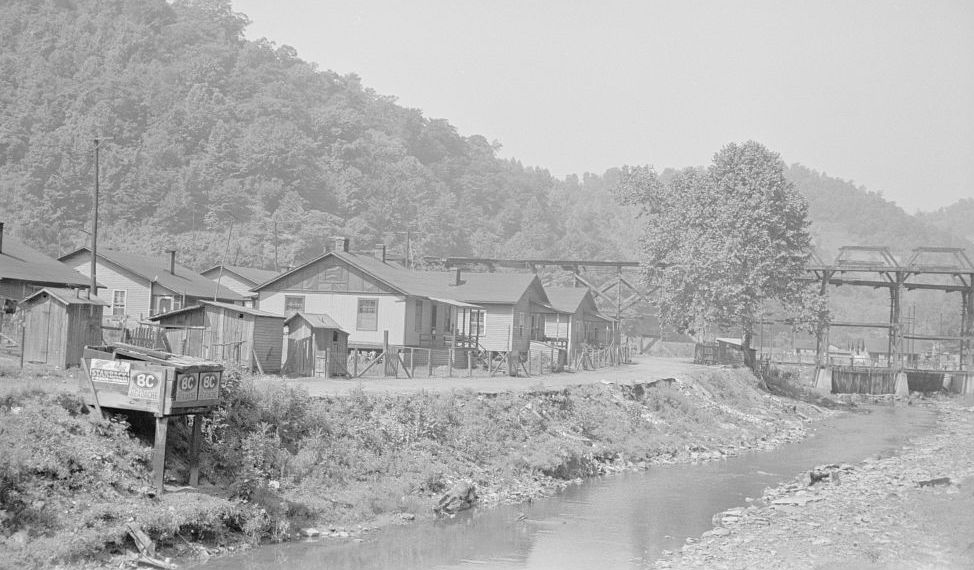Back in September we talked a bit about murder ballads: those peculiar songs from the American South that recount the events of killings. This time, we’re going to look at the ballad Lulie Vars, based on the 1916 murder of Lula Viers by her lover. In many ways, it’s a tragically ordinary story. Over half of female American murder victims were killed by their husband or boyfriend. But the elements of this case are jarring – exactly what you want in a murder mystery. It’s got a particularly heinous killing, a unique getaway, a folk ballad, and a truly unusual way to seek justice for the crime.

Lula Viers grew up in the coal camp and ‘company town’ of Auxier, Kentucky. Her mother was a member of the Hatfield clan, the same one from the famous ‘Hatfield and McCoy’ feud. At age 13, Lula met John Coyer, the son of one of the bosses of the coal company. Lula and John saw each other on the sly, and at age 15, Lula bore John’s child. Lula’s father sued John for seduction of a minor. The case dragged on for years and was never resolved.
In December, 1916, when Lula was 19, John promised to marry her. He left on a train for Pike County, Kentucky to get a marriage license. Lula followed soon after. Then she disappeared. Her family immediately suspected foul play.
In May of 1917, John enlisted in the U.S. Army. America had entered World War I in April, and joining the Army gave him an easy way out of Kentucky. Lula’s mother (who, remember, came from an infamous feuding family) confronted John at the train station when he was about to depart. She demanded to know Lula’s whereabouts. He denied any knowledge. Lula’s mother drew a pistol and pulled the trigger twice, but both shots were misfires! John left town.
In June of 1917, Lula’s badly-decomposed body was found in the Ohio river. Her hands were bound behind her back with wire. A seventeen-pound piece of iron was also wired there. It was consistent with the angle bars used by the railroad in Pike County, where she was to be married. Lula’s mother went up and identified her by the dress she was wearing and a gold cap on a front tooth.

Lula’s missing persons case was now a murder! The state found witnesses and assembled a compelling case against John Coyer. The Army released John to the care of his home county. In early 1918, John was transferred to Pike County (where the crime was committed) for trial.
Then the Army stepped in. The Army insisted that John was their prisoner, and so only they had the authority to transfer him to Pike County. A major arrived in Pike County to retrieve the improperly-transferred murderer. Furthermore, the Army has the prerogative, in time of war, to refuse to hand over a soldier to civilian authorities for trial. Now that U.S. soldiers were sailing for France in large numbers, the Army decided it needed John and refused to give him back to Pike County. John was shipped to France. It’s unknown if he survived the war.
The American South has a strong tradition of murder ballads: songs that tell of heinous crimes, whether true, fictional, or somewhere in between. A Kentucky court stenographer wrote one about the Lula Viers murder. There are ten thousand variations, but I quite like the one by Loretta Lynn, where Lula’s name shifts to Lulie Vars and John Coyer’s to ‘John Collier’. At the end, the singer claims that John was locked up for life.
That’s a lie. If John came home from France, he never saw a day in prison for killing Lula. Pike County let him escape trial because getting one more soldier to Europe was more important than getting justice for a victim who was young and poor and a woman.
At your table, getting justice for a crime like Lula Viers’ murder could be a memorable and emotional adventure. The PCs might be in a tavern or dance hall and hear a song about the murder (you could even play Loretta Lynn’s Lulie Vars for your players). When the song ends, an NPC based on Lula’s Hatfield-clan, attempted-murdering mother could shout out “He ain’t in jail! The Army busted him out and took him to the war, and he’s still over there, the son of a bitch!” If Lula’s mother causes enough of a scene, the PCs may have to get involved and thereby learn the whole story.
Maybe the PCs can find a way to reverse this miscarriage of justice. Sure, they could hunt John down in a trench in France (or a battlefield appropriate to your campaign setting) and kill him, but that sort of rough ‘justice’ usually yields stories I find unsatisfying. It could be much more interesting if the PCs can work within the system to get John from France to a courthouse in Pike County.
First, they’ll need to assemble all the evidence they can find to convince the Army. John’s former prosecutor can probably help with that, providing copies of sworn statements and photographs of material evidence. If the PCs try to dig deeper, reward that with reluctant testimony from John’s friends and neighbors. Maybe the party even finds a rail yard foreman who saw John steal the angle bar he used to weigh Lula down!

The detective work done, it’s off to France to track down John’s whereabouts! The major who fetched him from Pike County is the party’s likeliest source of information. The PCs may find him a shell-shocked double amputee recovering in a tent near the front. His memory’s a little muddled, but he’s got little else to do in the hospital but think.
When the PCs reach John’s unit, it’s important he still be alive. “I’m sorry, he died last Tuesday” is a cop-out. That said, what’s his status in the unit? Is he widely-respected, perhaps even indispensable? Or is he a troublemaker, someone his captain will be glad to be rid of? This will determine how hard the PCs have to fight to get him released to their custody. If arguments and evidence don’t sway John’s commander (“I don’t give a damn what he may or may not have done to some slut in Kentucky; I can’t spare a single man”), the PCs will have to find some other way to spring him. Kidnapping’s an obvious one. But undermining the murderer’s reputation might also work. If the other soldiers don’t work well with him anymore, the chain of command might be more willing to cut John loose.
On the way back to Kentucky, give John one solid escape attempt. He can’t run far on the boat from France, but he might be able to flee in the crowded ports of Brest or New York. In Kentucky, John likely still has contacts and friends who might create a diversion and help him hide. Don’t let gaining custody in France be the end of this story! When the PCs see John squirming before the judge in the Pike County courthouse, you want them to feel like they earned this victory.
–
Source: CrimeSong: True Crime Stories from Southern Murder Ballads by Richard H. Underwood






